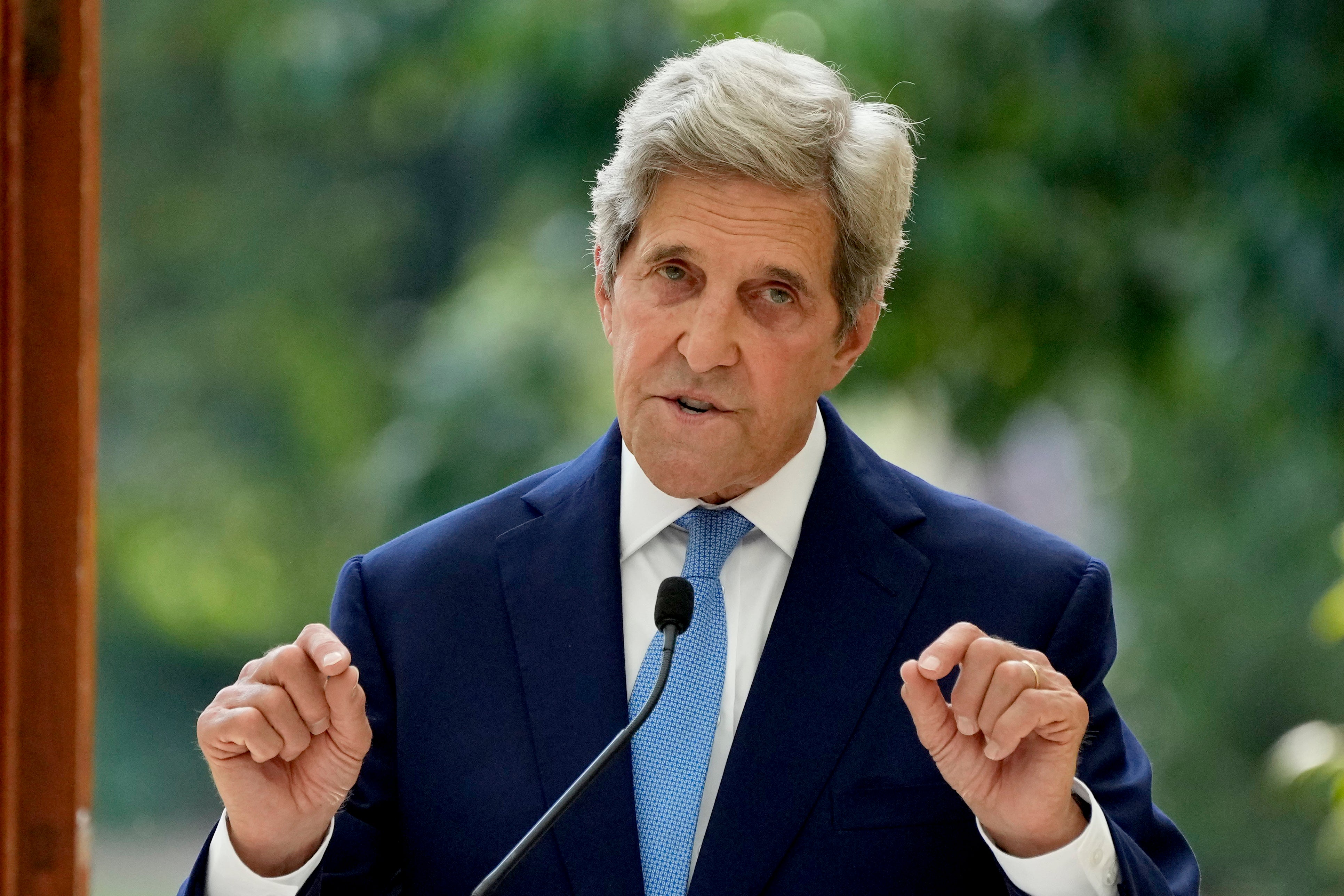John Kerry’s call to ramp up climate action is noble, but first the US must help deliver on financing it
With 100 days to go until Cop26, a lack of clarity over how efforts to tackle the climate crisis are being funded is fuelling mistrust among nations, writes Anna Åberg and Antony Froggatt


Your support helps us to tell the story
From reproductive rights to climate change to Big Tech, The Independent is on the ground when the story is developing. Whether it's investigating the financials of Elon Musk's pro-Trump PAC or producing our latest documentary, 'The A Word', which shines a light on the American women fighting for reproductive rights, we know how important it is to parse out the facts from the messaging.
At such a critical moment in US history, we need reporters on the ground. Your donation allows us to keep sending journalists to speak to both sides of the story.
The Independent is trusted by Americans across the entire political spectrum. And unlike many other quality news outlets, we choose not to lock Americans out of our reporting and analysis with paywalls. We believe quality journalism should be available to everyone, paid for by those who can afford it.
Your support makes all the difference.On a balmy Tuesday afternoon, beneath the iconic, leafy canopies of London’s Royal Botanic Gardens in Kew, the US’s special presidential envoy for climate, John Kerry, delivered a clarion call speech on climate change, emphasising that “no country, rich or poor, will be spared” from the chaos caused by the climate crisis. With only days to go until an important G20 meeting in Naples, Kerry called on the world’s largest emitters to enhance their 2030 climate pledges, and to produce clear implementation plans for how such commitments shall be achieved. China, the world’s largest emitter, was called out specifically.
Action by the G20, which accounts for 75 to 80 per cent of global emissions, is crucial to prevent runaway climate change. And it is not just about China. Several G20 countries, including Australia, Brazil, India, Indonesia, Mexico and Russia have either not submitted new 2030 emissions reduction plans, or have submitted without raising ambition. The US itself is not perfect. For while it has enhanced its national 2030 substantially, the pledge is not fully consistent with the 1.5 degree target of the Paris Agreement.
Kerry also underlined that the US is working with partners to “further strengthen [their] collective support for the Paris finance commitments by the time we reach Glasgow”. This is crucial. Over a decade ago, developed countries pledged to mobilise $100bn (£73.4bn) per year for climate action in developing countries, starting in 2020. The pledge constitutes a core element of the bargain underpinning the Paris Agreement. With less than four months to go until Cop26, developed countries have still not been able to demonstrate that the goal has been met, or how it will be met in coming years.
The inability to provide clarity on the $100bn is fuelling mistrust between countries, with an adviser for the climate-vulnerable nations conveying that “if the money is not delivered before November, then there is little point in climate-vulnerable nations showing up in Glasgow to do business with governments that break their promises”. With the pressure rising, Cop26 president-designate Alok Sharma announced in early July that developed countries will produce a “clear plan” for how the $100bn will be mobilised from now until 2025.
The role of the United States in raising these funds is crucial. Under President Biden, the US has pledged to double its climate finance commitments by 2024, to $5.7bn (£4.1bn), and to triple its adaptation finance. This is welcome but – given the size of the US and its emissions as well as its low climate finance contributions in the past – grossly insufficient. At the event in Kew, Kerry acknowledged that “[t]here has to be good faith by everybody here – and we’re not exempt from that”, and highlighted President Biden’s “complete, total commitment to helping to make that ($100bn) happen”.
The honouring of the $100bn is a prerequisite for success at Cop26, and a more ambitious offer from the US on climate finance could create positive dynamics in the Cop process. Will the US deliver?
Anna Åberg is a research analyst and Antony Froggatt is deputy director of the Energy, Environment and Resources Programme at Chatham House
Join our commenting forum
Join thought-provoking conversations, follow other Independent readers and see their replies
Comments